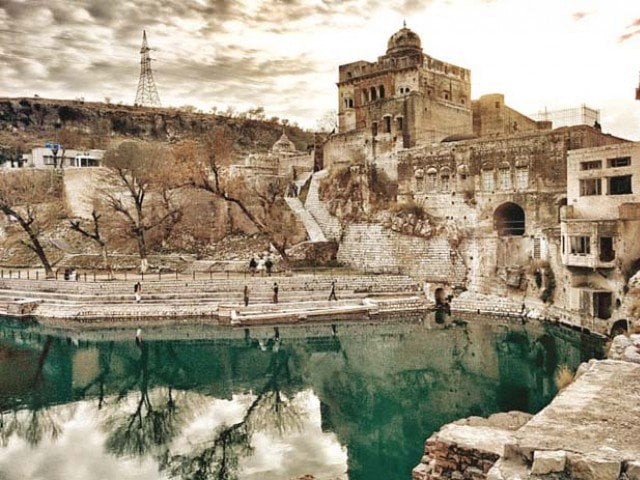Katas Raj Temple pond: ‘Water as precious a commodity as gold’
SC directs environmental inspections of all cement factories in Punjab

PHOTO: EXPRESS
These directions were issued as a three-member bench of the Supreme Court, led by Chief Justice of Pakistan Mian Saqib Nisar, heard the suo moto case of the Katas Raj Temple’s pond drying up.
During Friday’s hearing, Justice Nisar asked whether an alternative system had been put in place for cement factories, set up in the vicinity of the historic temple, to get water and whether compensation rates for exploiting groundwater had been determined.
‘Water, solid waste management, public transport are govt’s top priorities'
The Punjab local government secretary told the court that they had finalised a formula on determining the price of water, tying it to per cubic feet of use. The official further said that they had settled on rates with two of the companies operating in the region.
At this, the chief justice expressed his displeasure that why rates had not been settled with other companies. He directed that homework for the rates should be finalised by Friday night.
He further directed to determine the situation at all cement factories operating in the province.
Environmental impact
Expressing concerns over the environmental impact of cement factories, the chief justice directed environmental officials to visit and inspect all cement factories in the province.
“This work cannot be completed while sitting in offices,” he thundered.
He further remarked that cement factories operating in the Chakwal area were a source of pollution. However, a representative of the environmental protection agency told the court that cement factories in the region have been inspected and that smoke emitting from these factories were within the set environmental parameters.
Chief Justice Nisar directed that all other cement factories should be inspected as well and sought a list of all cement factories operating around the country.
While issuing a notice to cement factories in the country, the court observed that those factory owners who do not cooperate will face action from the court.
The court further said that measures adopted by one cement factory to reduce emissions must be adopted by all the cement factories.
During the hearing, the Punjab environment secretary told the court that two cement factories had been set up in 2004 though there was no apparent need for them.
At this, the chief justice remarked that the federal investigation agency should be tasked with inquiring into the matter.
Construction of Diamer-Bhasha, Mohmand dams vital to avert water, food crisis
However, the Punjab additional advocate general adopted the view that the Punjab anti-corruption bureau could also conduct the inquiry.
Chief Justice Nisar, thus, directed the Punjab anti-corruption bureau to probe whether standards were observed in setting up the factories. The body was further asked to probe the role of environmental and industrial departments and to affix responsibility.
The Punjab environment secretary was directed to visit and inspect all cement factories in the province.
Published in The Express Tribune, September 15th, 2018.


















COMMENTS
Comments are moderated and generally will be posted if they are on-topic and not abusive.
For more information, please see our Comments FAQ